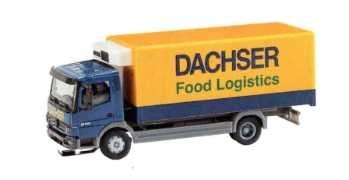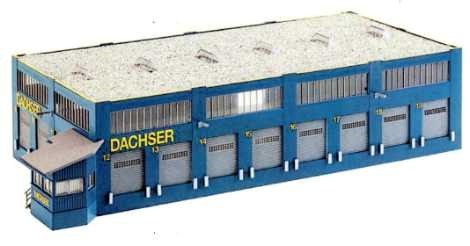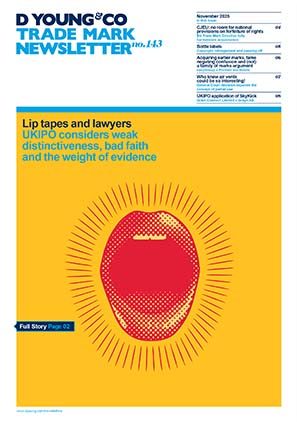Trade marks for true-to-life toy cars and buildings: German Supreme Court confirms no infringement
The plaintiff, DACHSER SE, a logistics company, is proprietor of the German trade marks DASHSER and DACHSER Food Logistics, covering in particular logistic and transport services (see below):


These trade marks are, inter alia, used on trucks and warehouses.
The defendant is a German toy model company, offering a model truck which is a true-to-life replica of the DACHSER trucks and a model warehouse (see below).


The model warehouse is not a true-to-life replica, however, it has certain characteristics that are common for the DACHSER’s warehouses, in particular, the display of the trade mark on the building.
In the first instance, the District Court of Cologne granted the claims for trade mark infringement and also confirmed reputation. The Higher Regional Court of Cologne, however, overruled the decision, refuting a trade mark infringement and infringement of German unfair competition law, whereby it was left open whether DACHSER could rely on reputation.
Decision
DACHSER’s appeal to the German Federal Supreme Court (Bundesgerichtshof – BGH) was unsuccessful. The court ruled that there was no likelihood of confusion, since the goods (model cars) and (logistic and transport) services covered by DACHSER’s trade marks were dissimilar. Remarkably, the German Federal Supreme Court indicated that even if DACHSER’s trade marks covered toy models there would still be no likelihood of confusion, since in the toy industry there is a long standing custom of selling true-to-life replicas. German consumers would be accustomed to such replicas and not perceive the signs on them as indications of origin, but merely as part of the replica itself. Therefore, there would be no impairment of DACHSER’s trade marks (see Opel Blitz II, I ZR 88/08).
Though DACHSER could rely on reputation and the defendant was taking advantage of this reputation, these claims were denied. It is not considered “unfair” in mere true-to-life replicas if a party does not attempt to use the reputation of the trade mark in another way, for example, for advertising the models bearing the trade marks.
These principles also apply to service marks. Even if the warehouse is not an identical, true-life replica this does not constitute an unfair exploitation. Consumers are aware that buildings regularly vary due to location, yet they will still recognise the replica as a typical DACHSER warehouse with its characteristic features.
Claims based on unfair competition law were also denied, since consumers were not confused about the identity of the manufacturer.
Previous case law
1. Court of Justice of the European Union (CJEU) in Adam Opel
In its decision Adam Opel (case C-48/05), the CJEU ruled that use of the sign on the toy model could also constitute an infringement of the trade mark registered for motor vehicles. It was for the national court to decide whether (in the absence of identity or similarity of the goods concerned) the distinctive character or repute of the trade mark registered for motor vehicles is taken advantage of or impaired by the use of the sign on vehicle models.
Further, the CJEU stated that the affixing of a trade mark on a true-to-life replica does not serve as an indication concerning a characteristic of these replicas. Rather, the trade mark is merely a part of the faithful reproduction of the original vehicle.
2. German Supreme Court in Opel-Blitz II
In Opel-Blitz II, following the CJEU’s judgment, it was held that using a well-known car manufacturer’s trade mark on a toy replica only constitutes an exploitation of reputation “in an unfair manner” if there are further aspects, for example, efforts to use the trade mark’s reputation for advertising or anything beyond the mere use as a true-to-life replica.
These considerations do not per se contradict the CJEU’s ruling, since German consumer’s expectations of replicas as well as the long-standing customs allow for such a justification.
In short
The German Federal Supreme Court confirmed the legal principles previously set out in Opel-Blitz II. It extended these principles of faithful true-to-life replicas to the use of services marks and to warehouses as models. However, this begs the question of whether this perception has changed or is still the same.
Yet, these principles are limited to trade mark and unfair competition law claims, whereas replicas can also constitute design or copyright infringements.
Case details at a glance
Jurisdiction: Germany
Decision level: Federal Supreme Court
Parties: Dachser SE v Gebr. Faller GmbH
Citation: I ZR 86/22
Date: 12 January 2023

